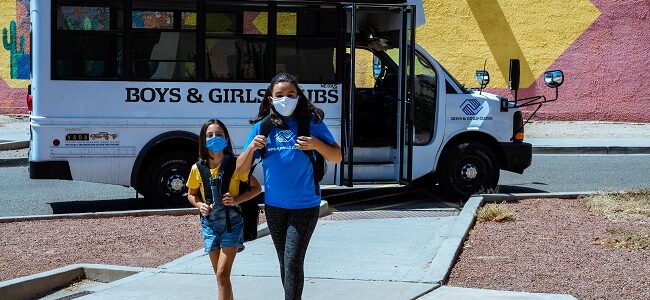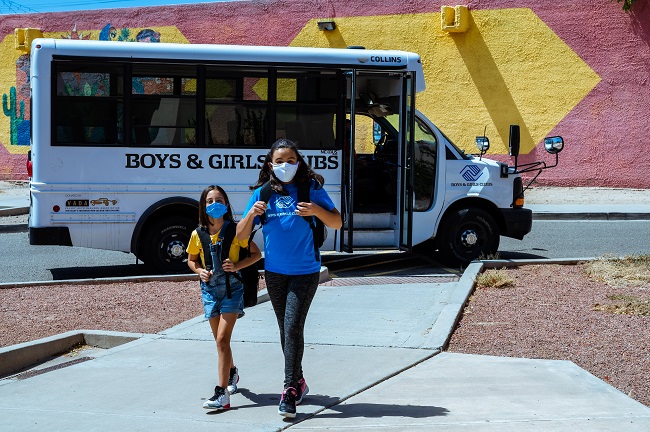
Boys & Girls Clubs of Greater Houston Provides Back to School Safety Guidance
“Safety is in our DNA at Boys & Girls Clubs of Greater Houston, and we take our role as protectors of children and teens seriously,” says Kevin Hattery, president and CEO. “We want our Club members and their families to be safe and healthy during this unsettling time and have instituted measures to adapt to needs, including food pantries, virtual learning and now in-person programming in the safest possible environments. Parents can be proactive with their kids on the safety front in several ways, including school transportation, disease prevention and cyber safety.”

With so many questions about health and safety as children and teens head back to school, Boys & Girls Clubs provides guidance in navigating specific areas of concern:
Protection from COVID
- Reinforce everyday precautions: Remind kids about effective precautions, including social distancing, mask wearing, washing hands frequently and not sharing food or drinks. If your child has a fever or respiratory symptoms, keep him or her home from school and contact a physician.
- Know and understand the school’s safety measures: Make sure that your child’s school is adhering to the recommendations set forth by public health officials — implementing every plan and measure needed to keep your child safe while on campus.
- Listen to your child’s concerns: It’s important your child feels comfortable expressing any concerns or anxiety he or she may have about returning to school during the pandemic. Whether your child is worried about wearing a mask all day or what might happen if there’s a confirmed case at school, be sure to listen intently and reassuringly.
Transportation Safety
- Walking
- Review your family’s walking safety rules and practice walking to school with your child
- Walk on the sidewalk, if one is available; when on a street with no sidewalk, walk facing the traffic
- Before crossing the street, stop and look left, right and left again to see if cars are coming
- Make eye contact with drivers before crossing and always cross streets at crosswalks or intersections
- Stay alert and avoid distracted walking
- Bike Riding
- Teach your child the rules of the road and practice riding the bike route to school with your child.
- Ride on the right side of the road, with traffic, and in a single file
- Come to a complete stop before crossing the street; walk bikes across the street
- Stay alert and avoid distracted riding
- Make sure your child always wears a properly fitted helmet and bright clothing
- Bus Riding
- Teach your children school bus safety rules and practice with them
- Go to the bus stop with your child to teach them the proper way to get on and off the bus
- Teach your children to stand six feet (or three giant steps) away from the curb
- If your child must cross the street in front of the bus, teach him or her to walk on the side of the road until they are 10 feet ahead of the bus; your child and the bus driver should always be able to see each other
Cyber Safety (at home and in public places)
- Know the online environments your children use. Help them identify safe, credible websites and other digital content, and be cautious about clicking on, downloading, posting and uploading content. Monitor their web histories if need be.
- Safety and security start with protecting all family computers with a suite (anti-virus, anti-spyware and firewall) that is set to update automatically.
- Remind children to be good “digital citizens” by respecting personal information of friends and family. Photos or videos that could damage their reputations, friendships or future prospects should never be shared electronically.
- Educate on cyber bullying, online predators, scams. Advise kids to never share passwords, usernames, credit card numbers, social security numbers or other personal data.
- Be careful about the information you or your child share and what you access over public Wi-Fi. These hotspots may seem safe, but they can often be ground zero for cybercriminal attacks.
Tips were found through Houston’s Methodist Hospital, the National Safety Council and the National Cybersecurity Alliance.
For More Information
For further information on Boys & Girls Clubs of Greater Houston’s programming, please visit www.bgcgh.org.